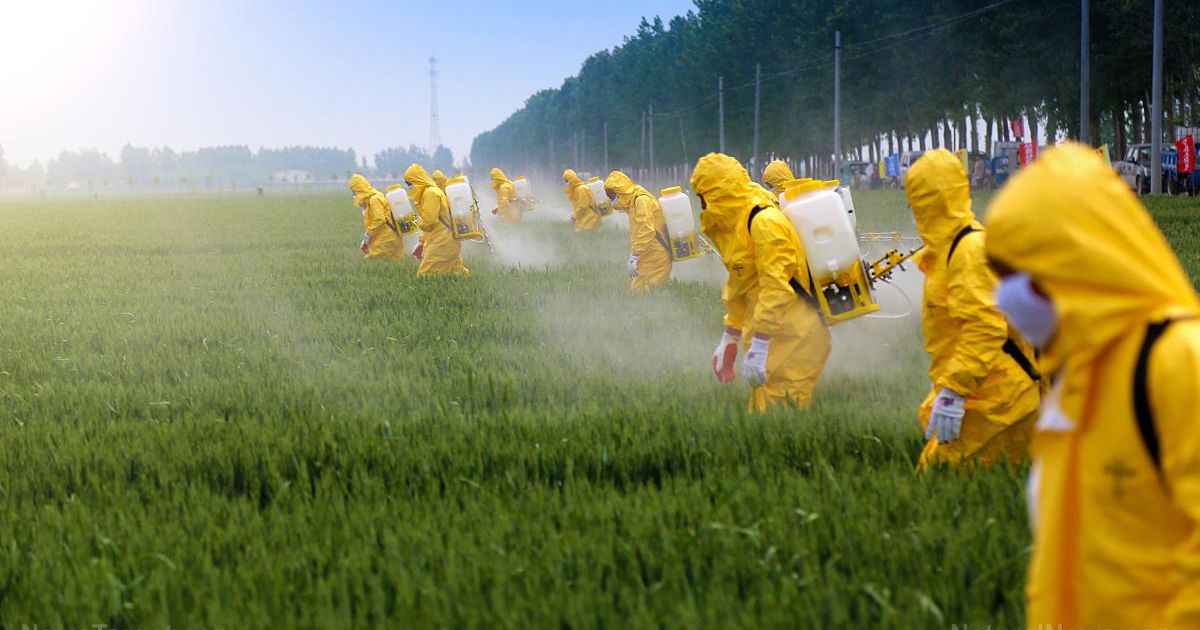How Do GMOs Affect The Human Body?
GMOs have been a hot topic that has been debated for decades, as those in favor of its use argue it is highly beneficial for humans due to better nutrition and for farmers to produce crops more rapidly and inexpensively to continue to feed our ever growing world. But those who oppose the use of GMOs in food argue it can adversely affect the human body and create numerous health issue. Let’s digest what consuming GM food products can do to the human body and how it affects overall health now.
What Are GMOs?

Genetically modified organisms, commonly called GMOs, are defined as organisms such as plants, animals, or microorganisms, where its genetic material (DNA) has been altered in such a manner that it does not occur naturally through mating or natural recombination. This type of technology is called 'modern biotechnology,' 'gene technology,' 'recombinant DNA technology,' or 'genetic engineering.' This technology allows scientists to select individual genes to be transferred from one organism into another, and also between non-related species. One of the primary objectives of developing plants with GM organisms is to improve crop protection against plant diseases caused by viruses or insects.
Foods produced from or using genetically modified (GM) organisms are called GM foods and are labeled as such due to numerous state or provincial laws. GM foods are developed and marketed as having a perceived advantage, which is a more affordable product with improved nutrition and durability.
Unknown Results

Currently, there is no clear and definite proof of the full effects of what GMOs do to the human body. Nobody knows with one hundred percent certainty that GMOs are completely safe to consume, as more research is needed. However, there is no reason to believe GM foods should be approved for safe consumption. According to experts, there are a variety of ways the populace can be fed through organic, GMO-free methods and GMOs are entirely unnecessary. But, as mentioned, more concrete research is needed to learn these full effects and to find other ways to mass produce food without using GMOs in plants and animals.
Blood Toxicity & Fetal Development

Research conducted in Canada, the first of its kind, had successfully identified the presence of pesticides associated with genetically modified foods in maternal, fetal, and non-pregnant women’s blood. Scientists also found Monsanto’s Bt toxin present in the blood samples as well, with these findings published in the journal Reproductive Toxicology. The study also noted the developing fetus was highly susceptible to the adverse effects of xenobiotics, a foreign chemical substance, hence why it is essential for us to learn more about the effects of GMOs, as environmental agents could disrupt the natural biological events necessary for healthy fetus growth and development.
GMO producers have stated the proteins found in GMOs are effectively broken down and eliminated during digestion. However, this claim is being questioned due to researchers finding out babies in utero tested positive for GMO toxins in their blood. Essentially, these GMO proteins survive human digestion and enter the bloodstream, then into the placenta and into the fetus, which could lead to possible birth defects.
Possible Allergenicity

The transfer of genes from commonly allergenic organisms to non-allergic organisms is highly discouraged unless this crossover of two different organisms can demonstrate the protein product of the transferred gene is not allergenic. Generally speaking, if a scientist mixes two different genes, with one being an allergen and the other one not, can produce a food source that could possibly cause an allergic reaction when ingested. Foods developed using traditional breeding methods are not necessarily tested for allergenicity, protocols for the testing of GM foods for potential allergens are in place by the Food and Agriculture Organization of the United Nations (FAO) and the World Health Organization (WHO). Thankfully, no allergic effects have been found in any GM foods currently on the market. However, there is a chance it can still occur for a few individuals as the risk is still there.
Stomach Inflammation & Celiac Disease

A recent study by the Institute for Responsible Technology (IRT), which used data from the US Department of Agriculture, US Environmental Protection Agency, and multiple medical journal reviews, and concluded genetically modified foods are related to the cause of numerous conditions. The five conditions that GM foods can either trigger or exacerbate gluten-related illnesses include intestinal permeability, an imbalanced gut bacteria, immune activation and allergic response, impaired digestion, and damage to the intestinal wall. As a result, the research indicated GM foods can cause major inflammation in the digestive system and intestinal wall, especially for those who suffer from gluten-intolerance. The researchers also stated GM foods can also trigger or lead to the autoimmune disorder, celiac disease.
The Problem With Glyphosate

Other studies published in the US National Library of Medicine, showed the potential health effects of a commonly used GMO, glyphosate, and how it can be an endocrine disruptor. Endocrine disruptors can result in developmental disorders, birth defects, and cancerous tumors. The research indicated glyphosate can have multiple effects in human hormone-dependent breast cancer, which could be traced back to contaminated soybean products as dietary supplements that can pose a risk of causing breast cancer due to it potential additive estrogenicity. With further digging, researchers discovered GMOs considered 'xenoestrogen,' which is a foreign estrogen that mimics real estrogen within the human body, which can lead to an increased risk of certain cancers, such as breast, early onset puberty, thyroid issues, and infertility.
Glyphosate Problems Continued

Monsanto’s glyphosate has also caused a number of birth malformations since 2002, as when glyphosate is ingested, it alters the chemistry within the body, as it is unnatural and the body cannot process it, seen with the previous examples. Specifically, this GMO inhibits the CYP enzymes, which is the pathway for normal, natural functioning of various biological systems within the body. As humans are exposed to glyphosate, they experience a significant decrease in their amino acid tryptophan levels, causing the necessary active signaling of the neurotransmitter serotonin to misfire or not work at all, which is associated with an individual experiencing weight gain and depression. Glyphosate has also been linked to autism, Parkinson’s disease, and Alzheimer’s for this reason, but further research is still needed.
